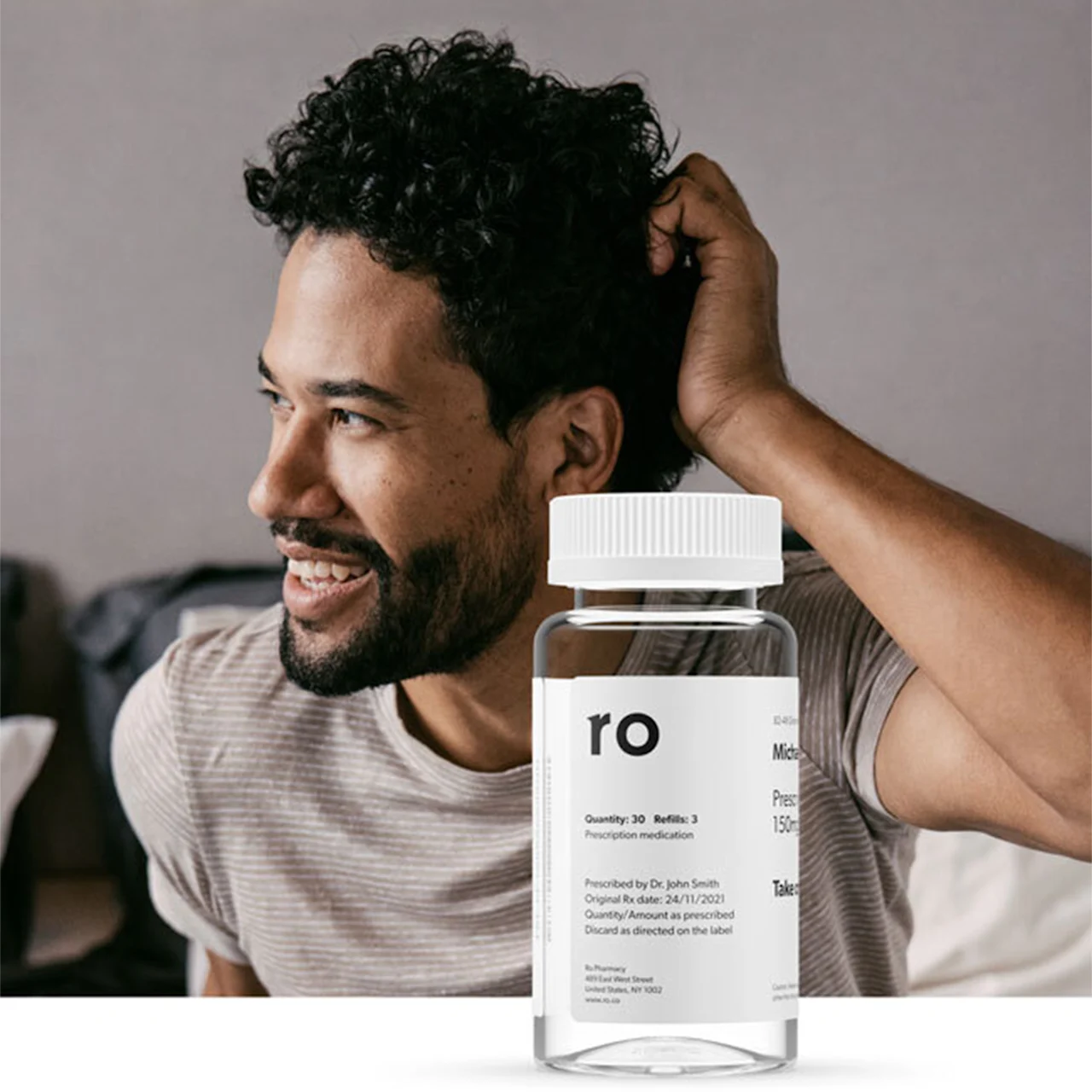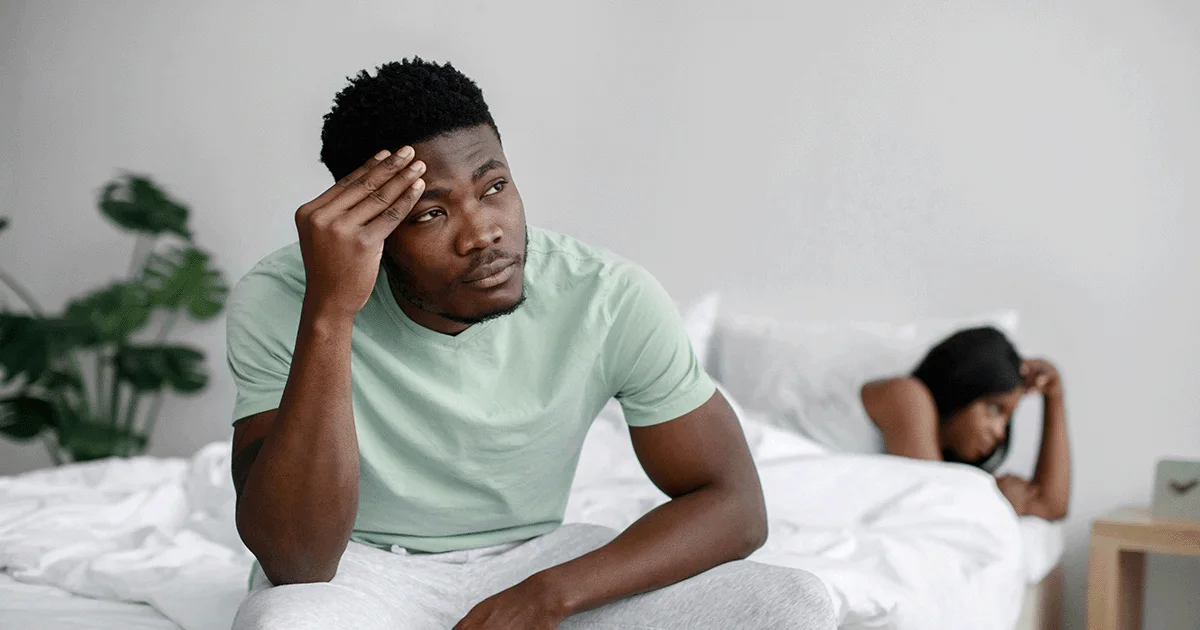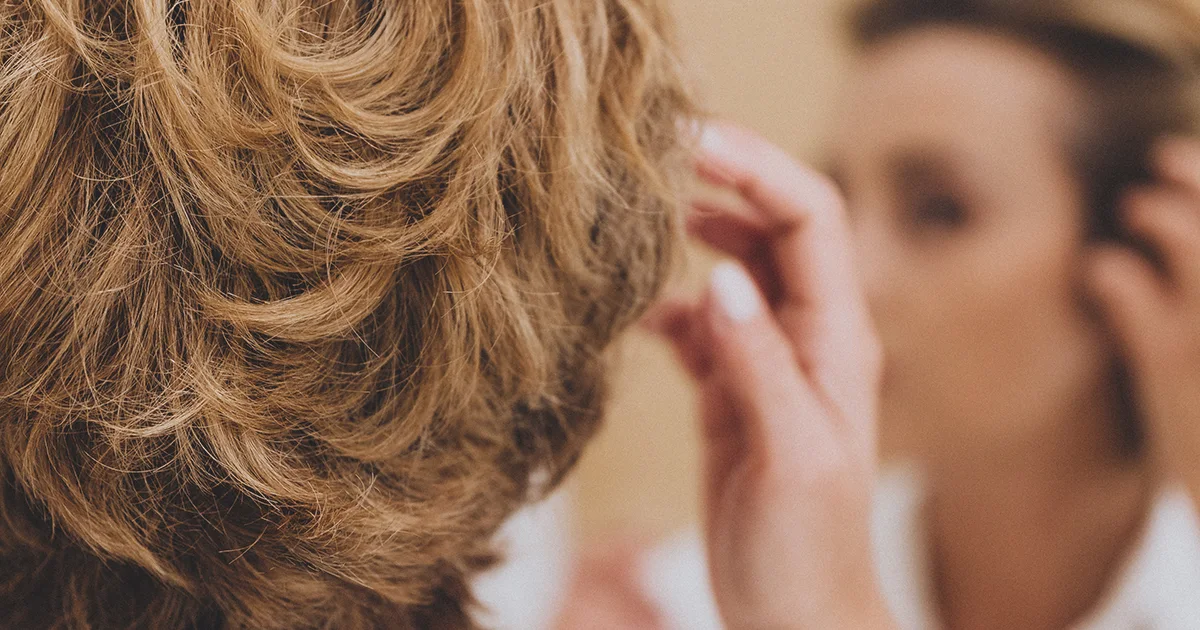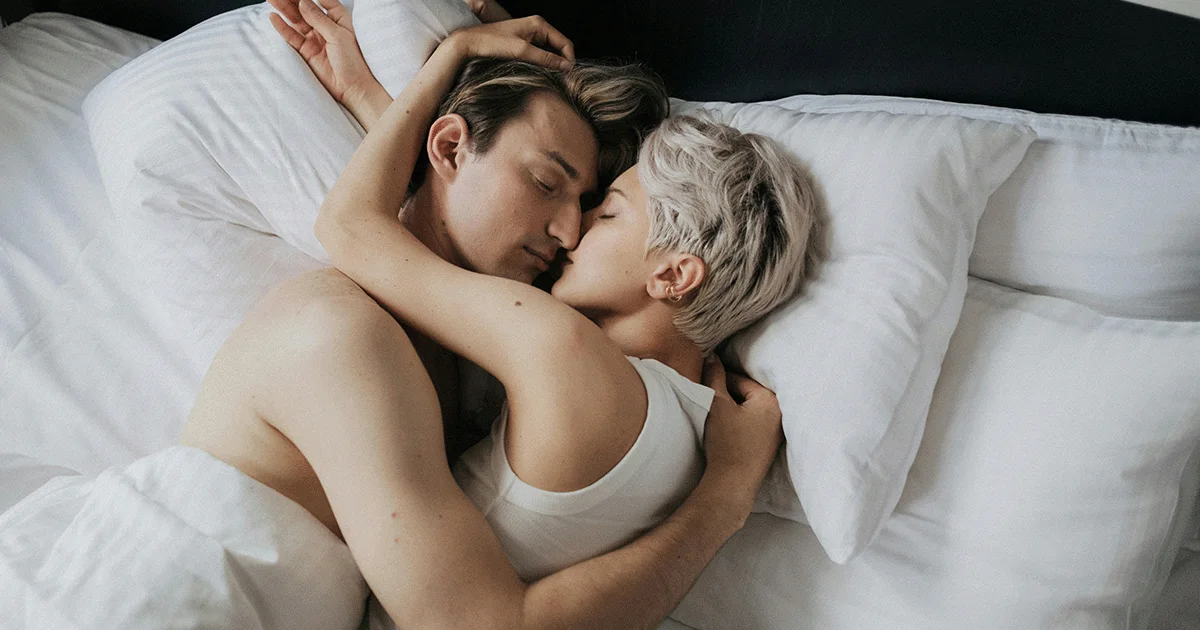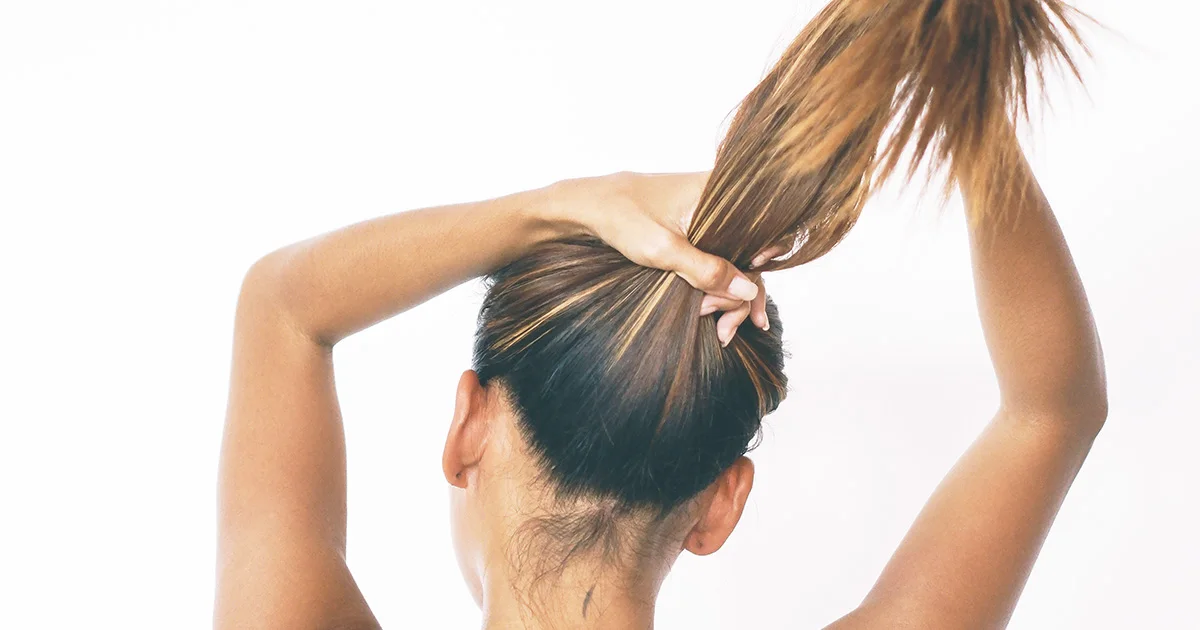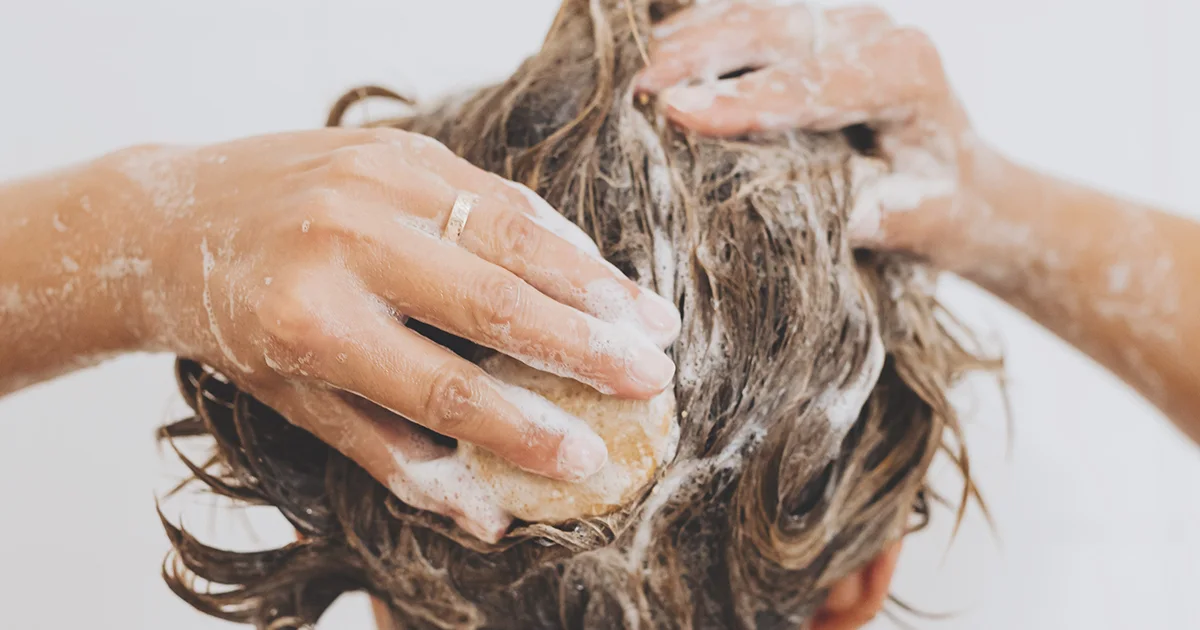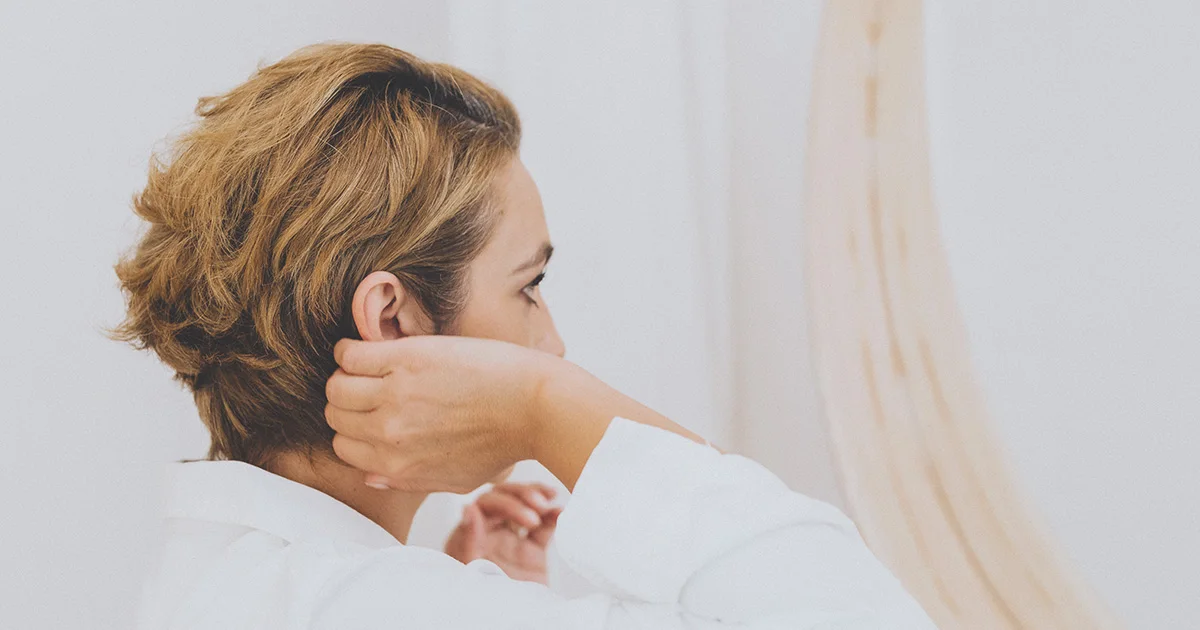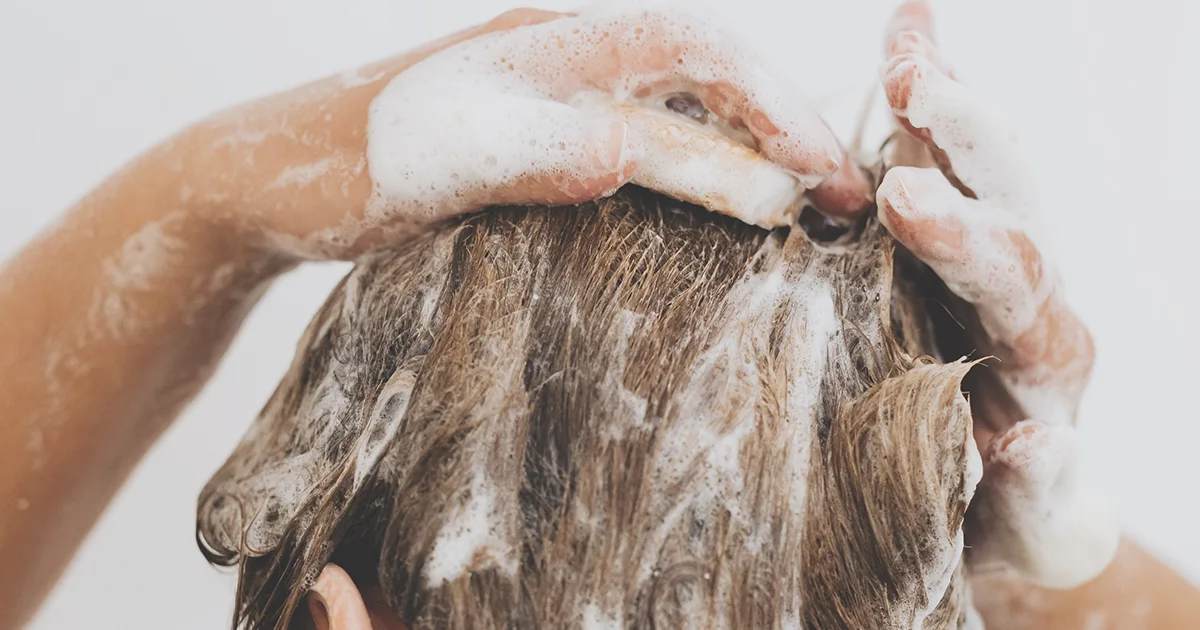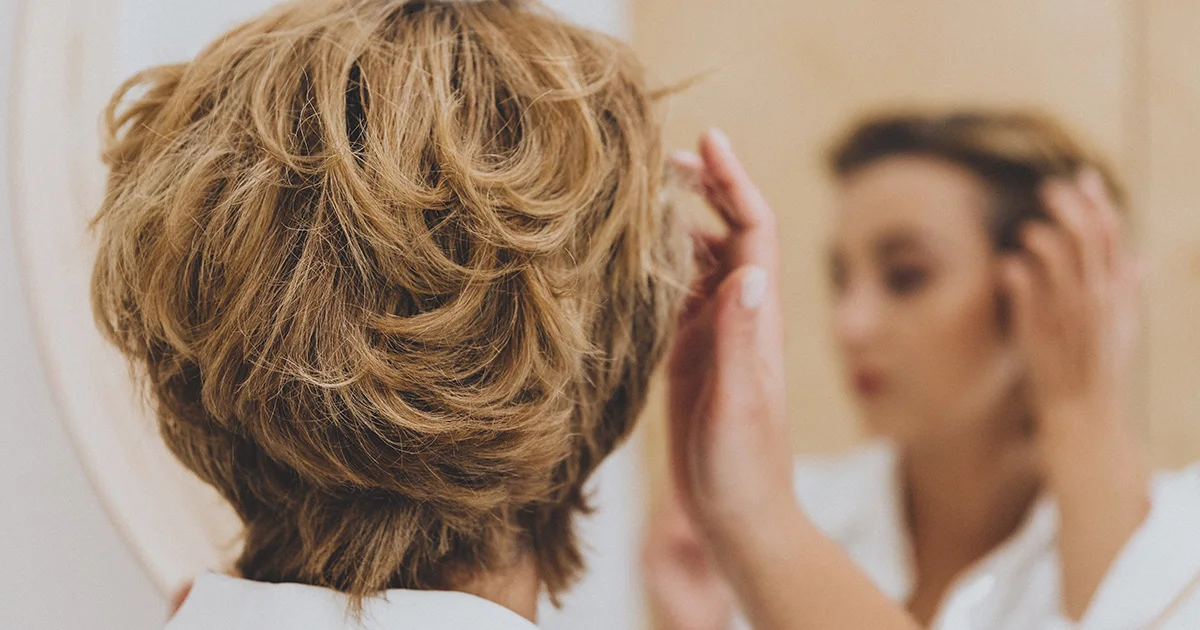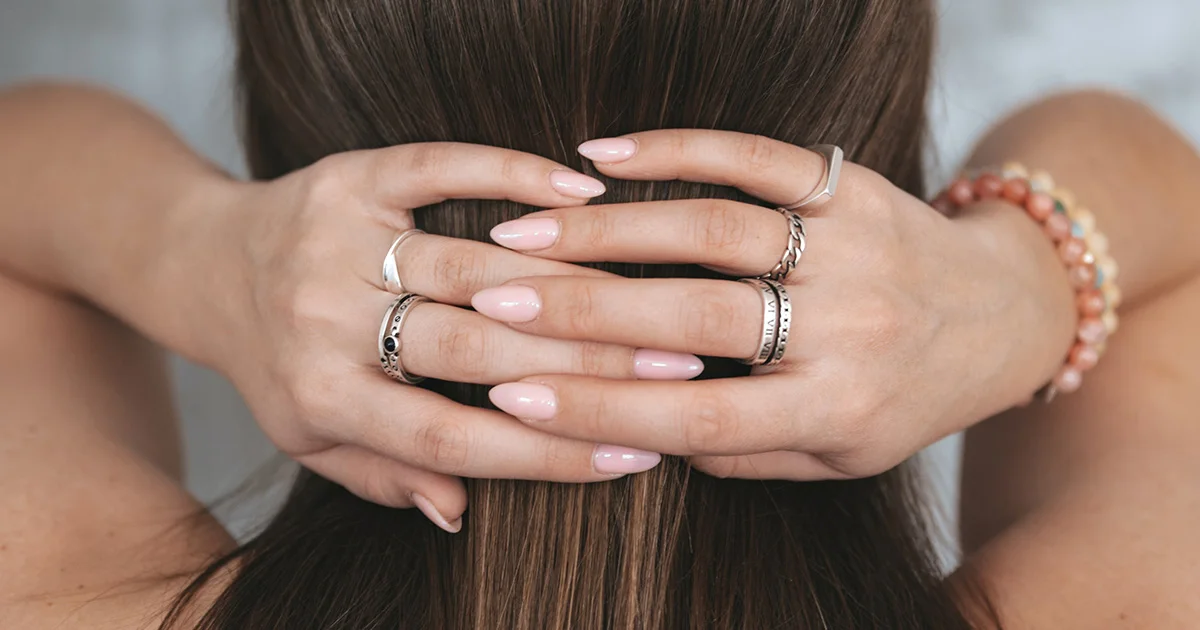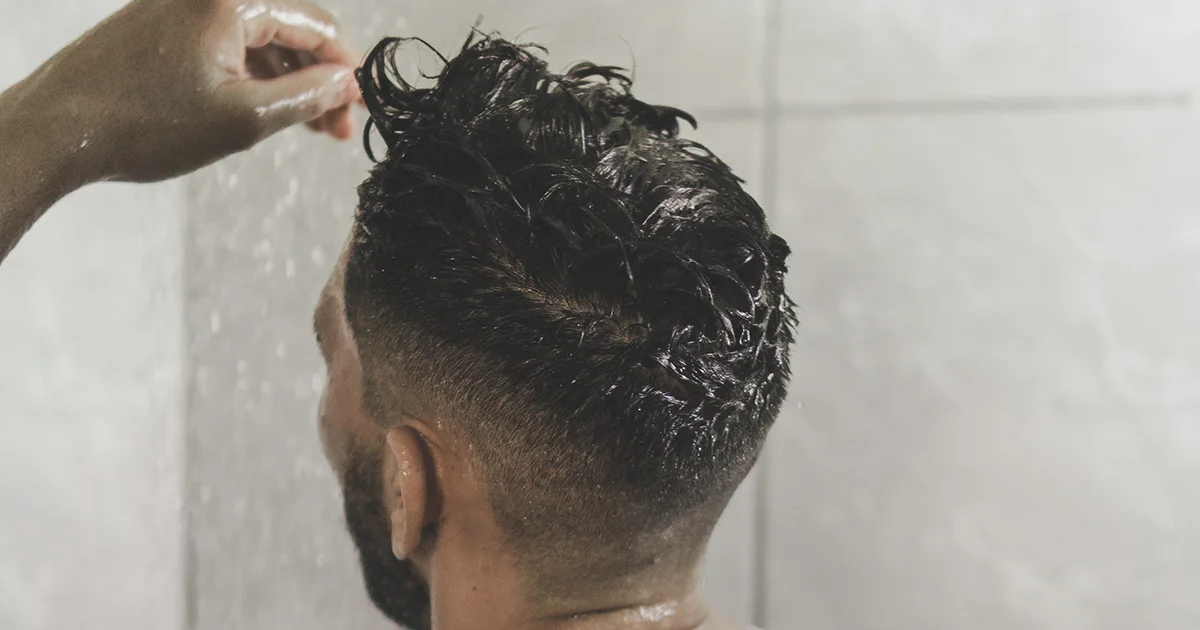Here's what we'll cover
Here's what we'll cover
Here's what we'll cover
If you've ever shopped for vitamins or supplements to improve the quality of your hair (or even regrow it), you've probably noticed that many have one ingredient in common: biotin.
Biotin has gotten a reputation as the vitamin of choice for healthy hair, skin, and nails. Popular supplements like Nutrafol and Viviscal both contain biotin for hair growth. But what does the science say? Does biotin work for hair growth?
The short answer: probably not. Read on to find out why.
Does biotin regrow hair?
Biotin is an important nutrient that helps your body’s metabolism turn carbohydrates, fats, and protein into energy. Research shows that biotin helps your skin cells produce more keratin, a protein that your body needs to make strong skin, nails, and hair (Fritsche, 1991). People with biotin deficiency experience hair loss, scaly rashes, and brittle nails, so using biotin supplements to increase keratin and boost hair growth sounds like a no-brainer.
And for people who have a biotin deficiency, the evidence is there. Biotin deficiency is definitely a cause of hair loss, and for people who don’t have enough in their bodies, treatment with a biotin supplement can improve hair and nail strength (Patel, 2017; Famenini, 2014). Biotin deficiency may be caused by smoking, medications (like drugs that prevent seizures), underlying medical conditions, pregnancy, or genetics. But most of us get more than enough biotin from the foods we eat, so having a biotin deficiency is rare.
Research in people who don’t have a biotin deficiency seems to show that it’s not necessarily the panacea of all hair loss woes.
In one small study, researchers used a supplement that contained biotin (among other things) to treat women with thinning hair. They compared the results in 30 women treated with the supplement to 30 women who were given a placebo. The 30 who took the supplement saw improved hair growth and decreased hair shedding after 90 days. However, the supplement also contained ingredients such as vitamin C and zinc, so it’s hard to tell if the effects could be attributed to the biotin alone (Ablon, 2015).
In 2019, a group of researchers reviewed more than 100 studies on vitamins and hair loss. They found no evidence that biotin works for common types of hair loss like androgenetic alopecia (also called male pattern baldness) or temporary hair loss from stress or trauma (Almohanna, 2019).
And while taking biotin supplements probably won’t hurt (except maybe your wallet), adding them to your regimen probably won’t give you a thick, lustrous mane.
What is biotin, and how much do I need?
Biotin is sometimes called vitamin H, but it’s actually one of the many B vitamins (specifically, vitamin B7). It’s an essential nutrient, which is a fancy way of saying that our bodies can’t produce it on their own and need to get it from an outside source. The National Institutes of Health (NIH)'s Office of Dietary Supplements recommends that adults get 30 mcg of biotin daily. That said, most people get enough biotin from foods. Foods that have a lot of biotin in them include:
Meat and poultry
Fish
Eggs
Nuts and seeds
Sweet potatoes
Spinach
Broccoli
Cauliflower
If you have low levels of biotin in your body and you aren’t getting enough from your diet, a healthcare provider might recommend taking a supplement. Biotin is sold over-the-counter in pill and gummy form.
Biotin side effects
Even if you don’t need biotin, popping a few gummies probably won’t hurt you. That’s because biotin itself isn’t directly toxic. It's a water-soluble vitamin, meaning it doesn't usually build up in the body. If you take a high dose, you'll likely just pee out the excess. Occasionally people who take biotin supplements experience mild nausea or stomach upset, but side effects are pretty rare (Bistas, 2021).
Since there isn’t a lot of regulation around supplements, some manufacturers have developed supplements that contain enormous amounts of biotin. Formulations designed for healthy hair, nails, and skin may contain hundreds of times the daily recommended amount of biotin.
Biotin supplements available online or in the drugstore may include up to 10,000 mcg per dose when only 30 mcg a day is recommended. The problem with that is that very high levels can alter the results of blood tests, including hormone levels and heart tests.
The U.S. Food and Drug Administration (FDA) issued a warning about this phenomenon. One of the most important tools that healthcare providers have to diagnose a heart attack is a blood test that checks for something called troponin. Biotin supplements can change the results of that test, making it look like a person who is having a heart attack isn’t and delaying diagnosis (FDA, 2021).
High doses of biotin may also affect thyroid tests, or COVID-19 tests, resulting in unnecessary treatment or worry.
What treatments work for hair loss?
Not all hair loss comes from the same source, so treatment may depend on the cause.
For androgenic alopecia
The most common cause of hair loss (especially in men) is androgenic alopecia. It’s often called male pattern hair loss, but it occurs in women too.
It results from high levels of a particularly potent sex hormone called DHT (dihydrotestosterone). DHT attacks hair follicles on the scalp, causing them to shrink. Hair from those follicles becomes progressively thinner and may stop growing altogether.
But there are a few solutions. Finasteride (brand name Propecia; see Important Safety Information) is a medication that blocks DHT. Clinical trials found that finasteride successfully prevented hair loss in 83% of people who were treated. Finasteride is usually well-tolerated with minimal side effects (Shapiro, 2003).
There are also DHT-blocking shampoos available, most of which contain an antifungal medication called ketoconazole. Using a DHT blocker shampoo alone probably won’t significantly curb hair loss. But some studies suggest that using the shampoo while using finasteride is more effective than using finasteride alone (Khandpur, 2014).
Minoxidil (brand name Rogaine), is a topical treatment that can also help with androgenic alopecia. It comes as an over-the-counter liquid or foam you apply directly to your scalp. It seems to work by increasing blood flow to the scalp to support hair growth. In clinical trials, 40% of people who took minoxidil experienced hair regrowth (Goren, 2014).
For female pattern hair loss (FPHL)
Female pattern hair loss can be triggered by factors like hormones and aging. Minoxidil (Rogaine) may be used to treat FPHL. Rogaine (minoxidil) mentioned above is a good option, but it’s important to follow guidelines to avoid side effects, especially when using the solution. Women who use the stronger minoxidil solution (5% rather than 2%) are more likely to develop unwanted hair growth on their face (Carmina, 2019).
Sometimes it’s a matter of replacing the right nutrient—in this case, iron. Iron deficiency is common in women due to blood loss from their periods. Research has shown that replacing iron may combat hair loss in people with iron deficiency (Rushton, 2002). It’s important to follow up with a healthcare provider before starting iron therapy since taking too much iron can be harmful.
For stress- or trauma-related hair loss
Stress, trauma, and medications can all cause sudden hair loss. This condition, known as telogen effluvium, is a common cause of alopecia. The best cure for telogen effluvium is time since 95% of cases resolve on their own without treatment (Asghar, 2020). You can also talk to your healthcare provider if you think you may be taking medications that put you at risk for this condition.
For tension-related hair loss
Hair loss caused by repeated pulling on the hair is called traction alopecia. It generally resolves when there’s less tension on your hair. Avoiding tight hairstyles and limiting the use of chemical hair care products, heat, and relaxers may help.
If you have a biotin deficiency, taking biotin supplements may be a good option for treating hair loss. You’ll usually see improvement after a few months of regular use. Talk to your healthcare provider to determine if treatment with biotin is right for you.
DISCLAIMER
If you have any medical questions or concerns, please talk to your healthcare provider. The articles on Health Guide are underpinned by peer-reviewed research and information drawn from medical societies and governmental agencies. However, they are not a substitute for professional medical advice, diagnosis, or treatment.
References
Ablon G. (2015). A 3-month, randomized, double-blind, placebo-controlled study evaluating the ability of an extra-strength marine protein supplement to promote hair growth and decrease shedding in women with self-perceived thinning hair. Dermatology Research and Practice, 2015,
doi:10.1155/2015/841570. Retrieved from https://www.ncbi.nlm.nih.gov/pmc/articles/PMC4389977/
Almohanna, H. M., Ahmed, A. A., Tsatalis, J. P., & Tosti, A. (2019). The Role of Vitamins and Minerals in Hair Loss: A Review. Dermatology and Therapy , 9 (1), 51–70. doi:10.1007/s13555-018-0278-6. Retrieved from https://www.ncbi.nlm.nih.gov/pmc/articles/PMC6380979/
American Hair Loss Association. (n.d.). Men’s Hair Loss. Retrieved from https://www.americanhairloss.org/men_hair_loss/introduction.html
Asghar, F., Shamim, N., Farooque, U., Sheikh, H., & Aqeel, R. (2020). Telogen Effluvium: A Review of the Literature. Cureus, 12 (5), e8320. doii:10.7759/cureus.8320/ Retrieved from https://www.ncbi.nlm.nih.gov/pmc/articles/PMC7320655/
Bistas, K. G. & Tadi, P. (2021). Biotin. StatPearls [Internet]. Retrieved from https://www.ncbi.nlm.nih.gov/books/NBK554493/
Carmina, E., Azziz, R., Bergfeld, W., Escobar-Morreale, H. F., Futterweit, W., Huddleston, H., et al. (2019). Female Pattern Hair Loss and Androgen Excess: A Report From the Multidisciplinary Androgen Excess and PCOS Committee. The Journal of Clinical Endocrinology and Metabolism , 104 (7), 2875–2891. doii:10.1210/jc.2018-02548. Retrieved from https://pubmed.ncbi.nlm.nih.gov/30785992/
Chandrashekar, B. S., Nandhini, T., Vasanth, V., Sriram, R., & Navale, S. (2015). Topical minoxidil fortified with finasteride: An account of maintenance of hair density after replacing oral finasteride. Indian Dermatology Online Journal , 6 (1), 17–20. doi:10.4103/2229-5178.148925. Retrieved from https://www.ncbi.nlm.nih.gov/pmc/articles/PMC4314881/
Daroach, M., Narang, T., Saikia, U. N., Sachdeva, N., & Sendhil Kumaran, M. (2018). Correlation of vitamin D and vitamin D receptor expression in patients with alopecia areata: a clinical paradigm. International Journal of Dermatology, 57 (2), 217–222. doi:10.1111/ijd.13851. Retrieved from https://www.ncbi.nlm.nih.gov/pubmed/29243839
Famenini, S. & Goh, C. (2014). Evidence for supplemental treatments in androgenetic alopecia. Journal of Drugs in Dermatology , 13 (7), 809–812. Retrieved from https://jddonline.com/articles/dermatology/S1545961614P0809X
Fritsche, A., Mathis, G. A., & Althaus, F. R. (1991). Pharmakologische Wirkungen von Biotin auf Epidermiszellen [Pharmacologic effects of biotin on epidermal cells]. Schweizer Archiv fur Tierheilkunde, 133 (6), 277–283. Retrieved from https://pubmed.ncbi.nlm.nih.gov/1718031/
Gade, V., Mony, A., Munisamy, M., Chandrashekar, L., & Rajappa, M. (2018). An investigation of vitamin D status in alopecia areata. Clinical and Experimental Medicine , 18 (4), 577–584. doi:10.1007/s10238-018-0511-8. Retrieved from https://www.ncbi.nlm.nih.gov/pubmed/29869122
Goren, A., Shapiro, J., Roberts, J., McCoy, J., Desai, N., Zarrab, Z., et al. (2015). Clinical utility and validity of minoxidil response testing in androgenetic alopecia. Dermatologic Therapy , 28 (1), 13–16. doi:10.1111/dth.12164. Retrieved from https://pubmed.ncbi.nlm.nih.gov/25112173/
Khandpur, S., Suman, M., & Reddy, B. S. (2002). Comparative efficacy of various treatment regimens for androgenetic alopecia in men. The Journal of Dermatology , 29 (8), 489–498. doi:10.1111/j.1346-8138.2002.tb00314.x. Retrieved from https://onlinelibrary.wiley.com/doi/abs/10.1111/j.1346-8138.2002.tb00314.x?sid=nlm%3Apubmed
National Institutes of Health (NIH) Office of Dietary Supplements. (2021). Biotin. Retrieved on Nov. 30, 2021 from https://ods.od.nih.gov/factsheets/Biotin-Consumer/
Rushton, D. H. (2002). Nutritional factors and hair loss. Clinical and Experimental Dermatology , 27 (5), 396–404. doiz;10.1046/j.1365-2230.2002.01076.x. Retrieved from https://pubmed.ncbi.nlm.nih.gov/12190640/
Shapiro, J., & Kaufman, K. D. (2003). Use of finasteride in the treatment of men with androgenetic alopecia (male pattern hair loss). The Journal of Investigative Dermatology. Symposium Proceedings , 8 (1), 20–23. doi:10.1046/j.1523-1747.2003.12167.x. Retrieved from https://www.sciencedirect.com/science/article/pii/S0022202X15529357
U.S. Food and Drug Administration (FDA). (2019). UPDATE: The FDA Warns that Biotin May Interfere with Lab Tests: FDA Safety Communication. Retrieved on Nov. 30, 2021 from https://www.fda.gov/medical-devices/safety-communications/update-fda-warns-biotin-may-interfere-lab-tests-fda-safety-communication
